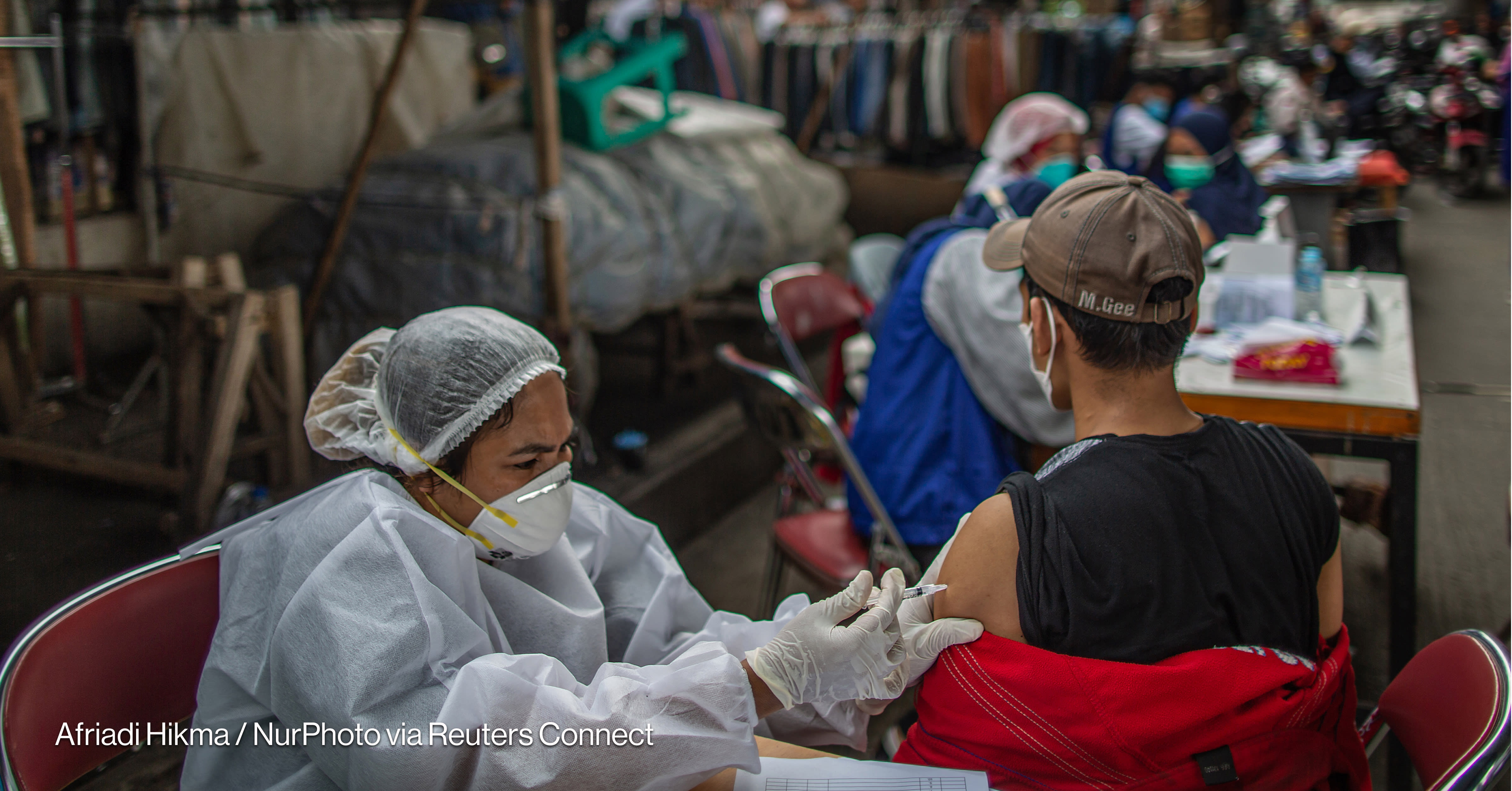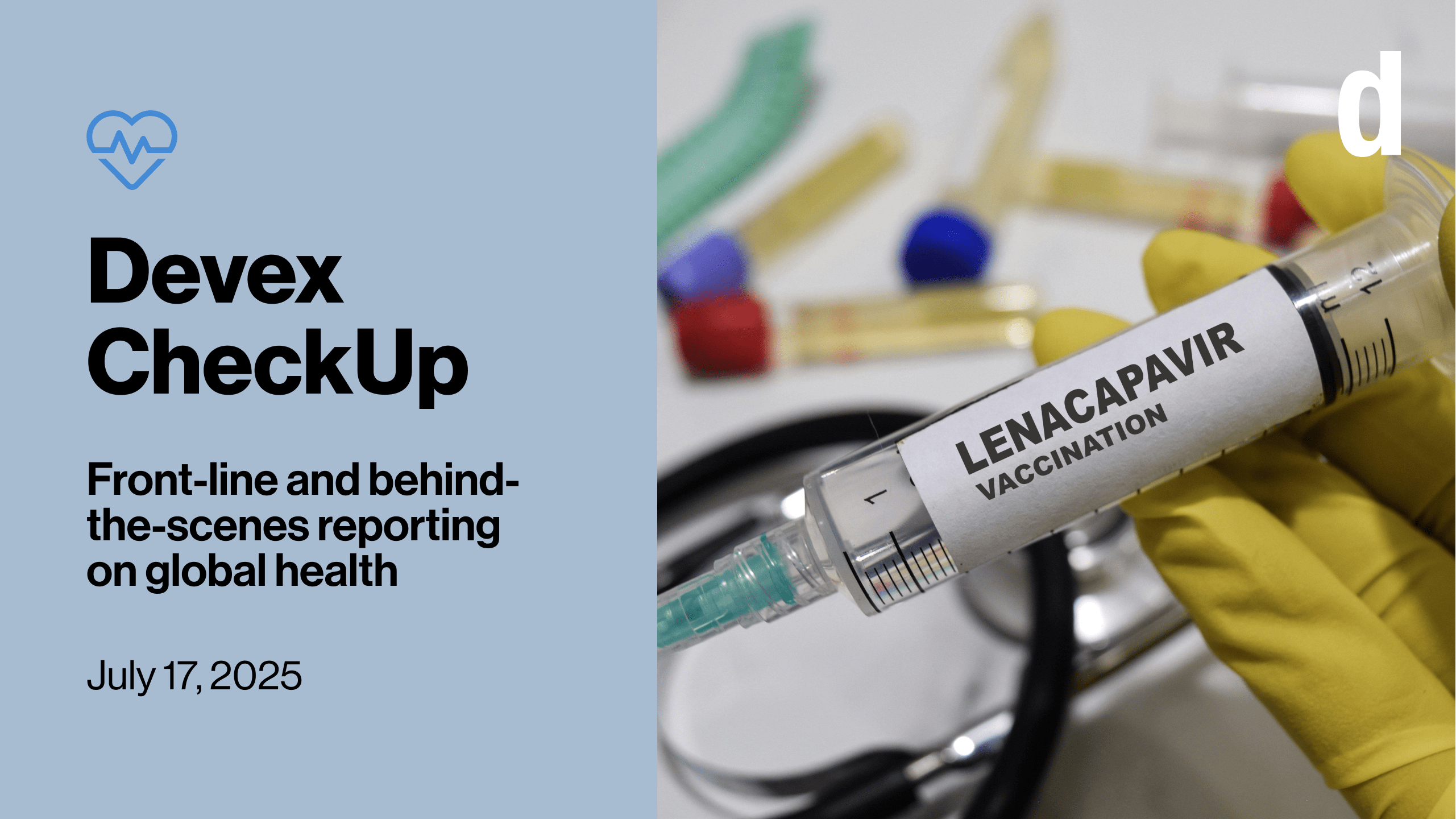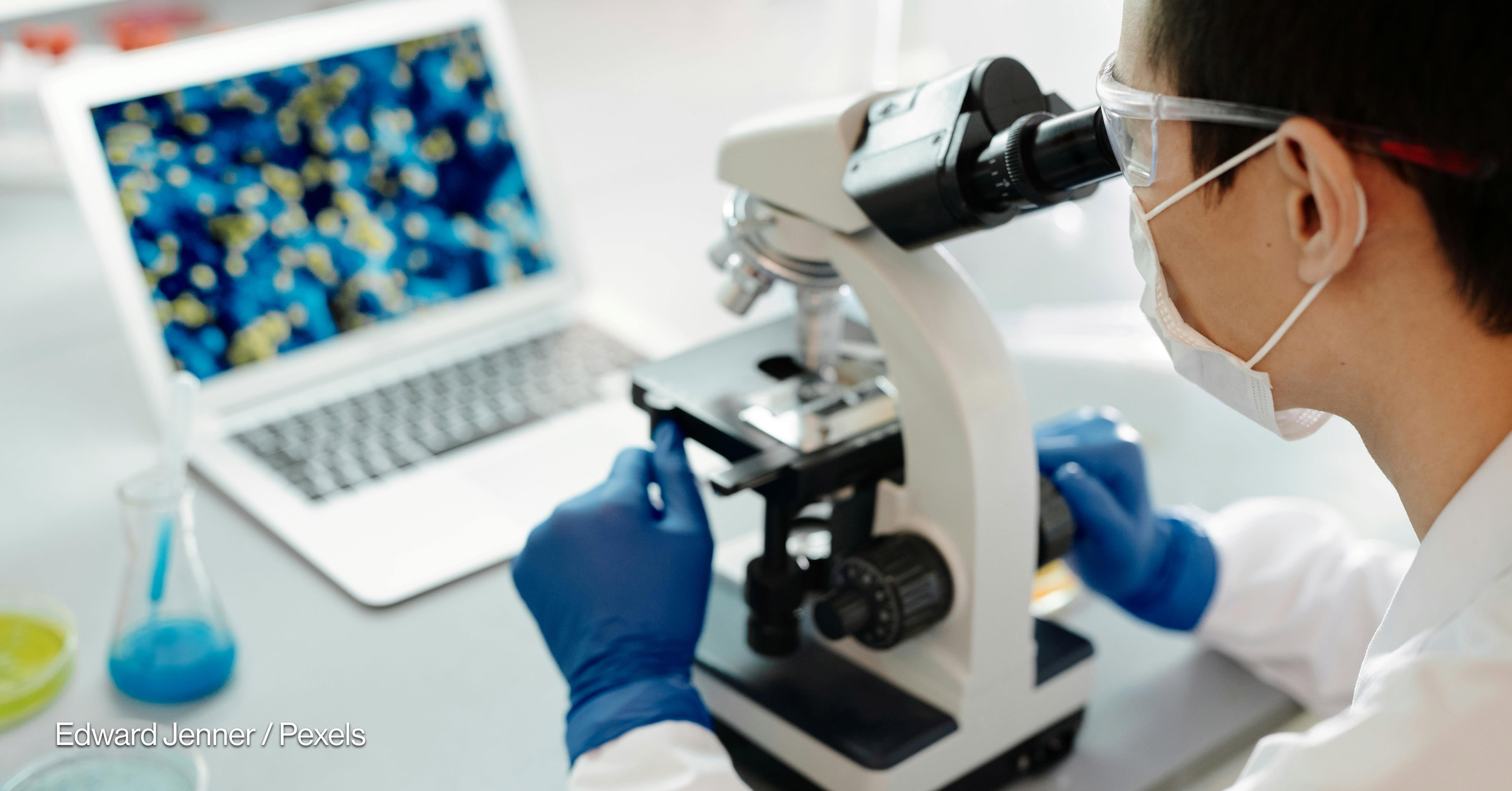
The Asian Development Bank this week approved $940 million in loans to Bangladesh to help the country in procuring coronavirus vaccines.
The loan, which includes a mix of regular and concessional loans, will help the Bangladesh government purchase about 44.7 million COVID-19 vaccine doses “to be administered to more than 20 million Bangladeshis by 2024” — about 12% of the country’s population — according to a news release. It is part of the bank’s Asia Pacific Vaccine Access Facility, or APVAX, worth $9 billion.
Sign up for Devex CheckUp
The must-read weekly newsletter for exclusive global health news and insider insights.
Bangladesh is also exploring other options for purchasing vaccines including COVAX and bilateral agreements to start administration in 2021 through 2022, according to Dr. Patrick Osewe, chief of the health sector group at ADB.
Since its launch in December 2020, the bank has approved close to $2 billion in loans and grants under APVAX. Several requests from countries are being considered and the pipeline of approved and non-approved requests at the moment amounts to over $4 billion, Osewe said.

An ADB member country can make multiple requests under APVAX, but each country can only borrow up to a certain amount based on a country's expected vaccination cost and population size. ADB will cover up to 30% of the estimated vaccination costs in countries lacking and those with limited creditworthiness. For countries with adequate creditworthiness, ADB will cover up to 20% of estimated vaccination costs.
Countries can also borrow money for activities to facilitate vaccine rollout, such as establishing cold chain infrastructure. ADB-approved loans and grants can also be used to help countries purchase additional vaccines via COVAX under a cost-sharing approach, or directly with vaccine manufacturers, but supply remains a key challenge in all cases.
Devex spoke to Osewe about ADB’s response to the huge demand for COVID-19 vaccines in low- and middle-income country members, the need for effective vaccine rollouts, and ensuring doses procured using financing under APVAX are equitably distributed.
“With every loan, we must get a very clear commitment from the government that the vaccines will be accessible to everyone.”
— Patrick Osewe, chief of the health sector group, Asian Development BankThis conversation has been edited for length and clarity.
Of the approved loans and grants under APVAX, are the majority under the COVAX cost-sharing approach?
No. We've given countries the flexibility, so the country can decide whether they're going to purchase through COVAX, or they're going to purchase directly from manufacturers. So there's no restriction, depending on where vaccines are available. Because COVAX has good negotiated vaccines, the price is really good, but some of these might not be available until say, for example, early next year, when maybe Sinopharm or Sinovac has vaccines this year. So we give countries that flexibility to decide where they want to get vaccines from.
Have any countries specifically asked ADB to help them to coordinate and have a more effective vaccine rollout by financing cold storage requirements or developing their data systems?
Most countries have established a vaccine task force, because this involves many players. So you have various donors like ADB, World Bank, UNICEF, WHO and others, you have the Ministry of Health in some places, you have the Ministry of Transport that's going to transport the vaccine. So all this is coordinated at the national level, and ADB is providing support to some of the countries. For example, in India, we provided a grant to hire a firm to help with their coordination. So depending on what the country was requesting, and if the coordination was a challenge and they needed support, then we provide that support.
One of the things that a number of civil society organizations are concerned with is inequity in access within countries. Does this affect APVAX approvals?
With every loan, we must get a very clear commitment from the government that the vaccines will be accessible to everyone. So in fact it's called an “access criteria.” [We] cannot proceed without this commitment from [the] government, because we recognize that, we didn't want a situation whereby vaccines funded by ADB [are] only going to the elite in a country. So equity, just like COVAX, just like WHO [World Health Organization] has recommended at the global level, is paramount in all APVAX projects.
When will Rohingya refugees be vaccinated?
Despite promises from the government and the World bank, COVID-19 vaccines are yet to reach Rohingyas in Bangladesh. Health workers are also concerned about counterproductive consequences of tightly enforced restrictions.
How will you ensure this equity in distribution in Bangladesh?
There are several partners in Bangladesh that are providing support for vaccines. So there’s COVAX, there’s ADB, World Bank, Islamic Development Bank, and others. And the Rohingya refugees are very much part and parcel of the access criteria for various partners.
Will APVAX be expanded to include additional financing or other vaccines other than COVID-19 vaccines in the future?
So that question has been raised by management and also by the board that's looking forward [at] how will 2022 [or] 2023 [will] look like. But of course, [with] the pandemic, we don't know how it’s going to look. And so, right now, our focus is to provide resources, the available resources, to countries to be able to purchase vaccines and develop [their health] systems.
So for now, the priority is to get vaccines into people's arms.









